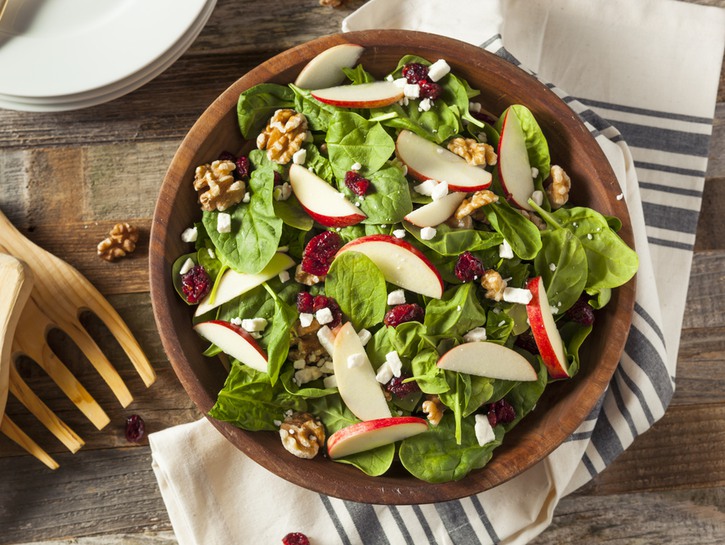It’s common for a diner to order a salad when out to eat and trying to make a healthy decision. But did you know that salad greens actually account for about 20 percent of all foodborne illnesses? We’ll cover just how these items can get contaminated, the health consequences, plus some other unexpected reasons not to order salad at a restaurant. Romaine calm — we’ll get through this shocking information together!
How Greens Get Contaminated

It’s particularly noteworthy when a known food-illness expert like Bill Marler won’t order salads at restaurants. Marler reminds us that some greens get contaminated in the field; then, when they are pre-washed and chopped with other vegetables, they become even more dangerous due to the harmful bacteria that can accumulate on them. Greens can be contaminated in any number of ways, but one example is when manure is used for fertilizer.
Another way produce can become tainted particularly applies to organically grown items. Since they aren’t treated with traditional fungicides, some organic food can be especially susceptible to mycotoxins, which are harmful compounds produced by fungi.
Consequences Of Contaminated Greens

Here are some common foodborne illnesses from greens that you may have noticed in the headlines:
- Listeria food poisoning can present as fever and diarrhea or flu-like symptoms. It’s especially dangerous for pregnant women.
- Another common issue is salmonella — the Centers for Disease Control and Prevention (CDCP) estimates 1.2 million cases occur per year. This bacteria causes fever and digestive upset.
- The aforementioned mycotoxins may cause liver disease and cancer when a person is exposed to them.
- E. coli can be deadly and result in kidney disease, severe cramping, vomiting, respiratory illness, and bloody diarrhea.
- The cyclospora parasite can cause vomiting, a low-grade fever, weight loss, loss of appetite, and diarrhea, among other symptoms.
Other Reasons You Shouldn’t Order That Restaurant Salad

Aside from the overwhelming evidence that greens in restaurant salads could be contaminated and cause you harm, there are even more reasons to avoid this choice.
Salads often cost much more than the restaurant paid for them. Reader’s Digest found that a classic wedge salad ingredient, iceberg lettuce, is often marked up about 20 times its worth. And don’t even think about ordering a chopped salad, which can be marked up 250 percent, according to Forbes.
Another key thing to keep in mind is what comes with your salad. Dressings are often laden with fat and chemicals and can quickly turn a diet-friendly food into a diet-busting food. Croutons, crispy chicken, tortilla strips, cheese, and other common salad toppers aren’t much better.
Finally, salads are not eco-friendly or sustainable. According to the Washington Post, salads are the top source of food waste. Even more alarming is that growing lettuce produces more greenhouse gas emissions than bacon does, according to a Carnegie Mellon University study.
The likelihood of contamination (and some nasty side effects) plus the markup, unhealthy toppings, and lack of sustainability make ordering salad at a restaurant a less-than-ideal choice. Consider all of these factors the next time you dine out.
